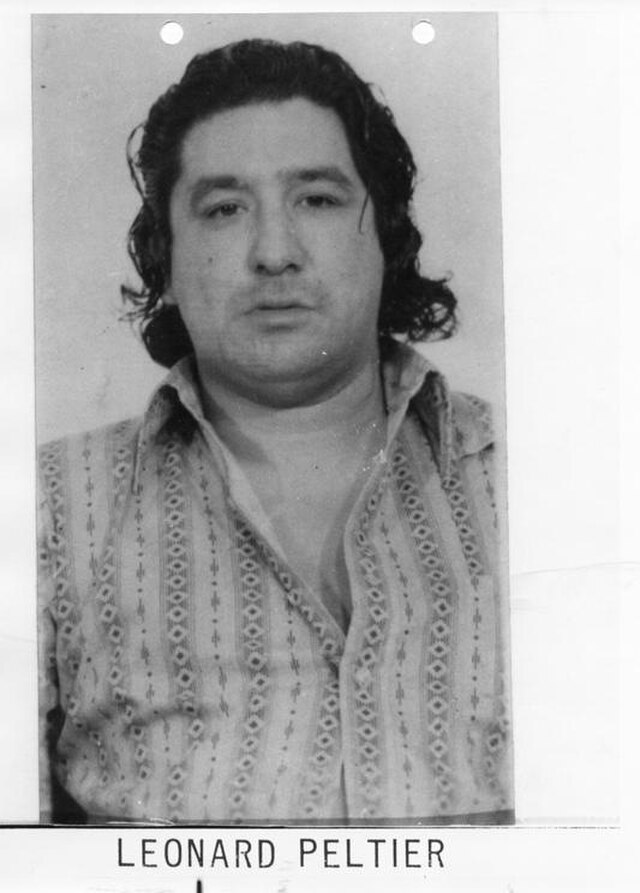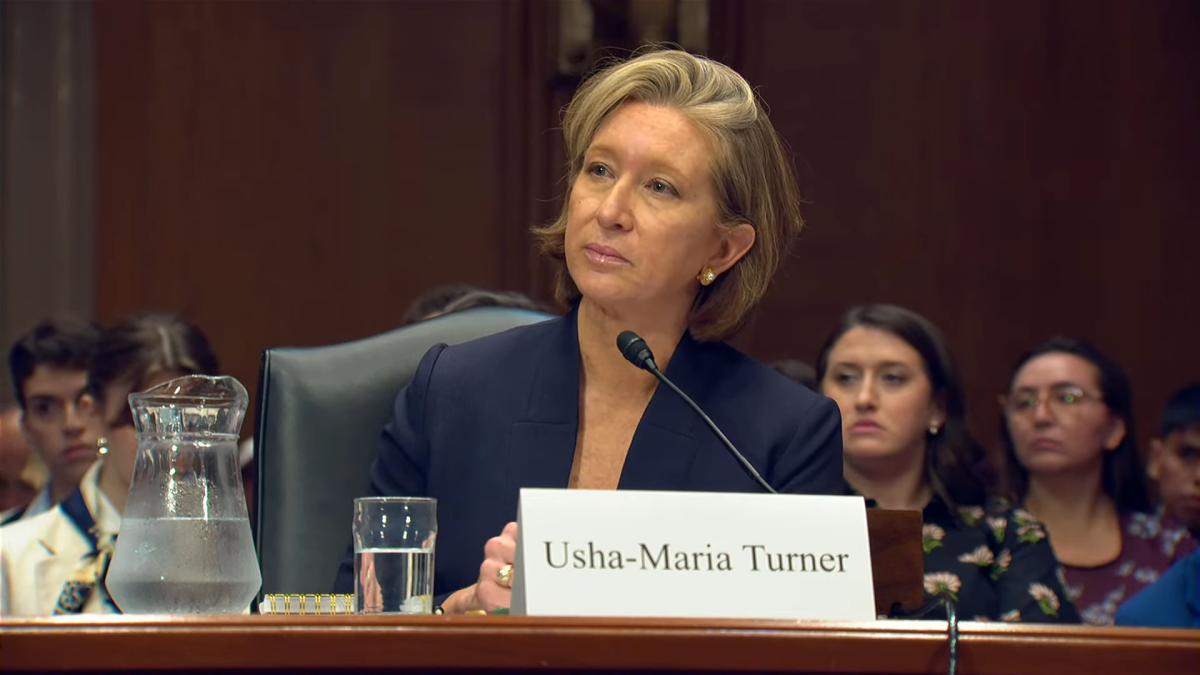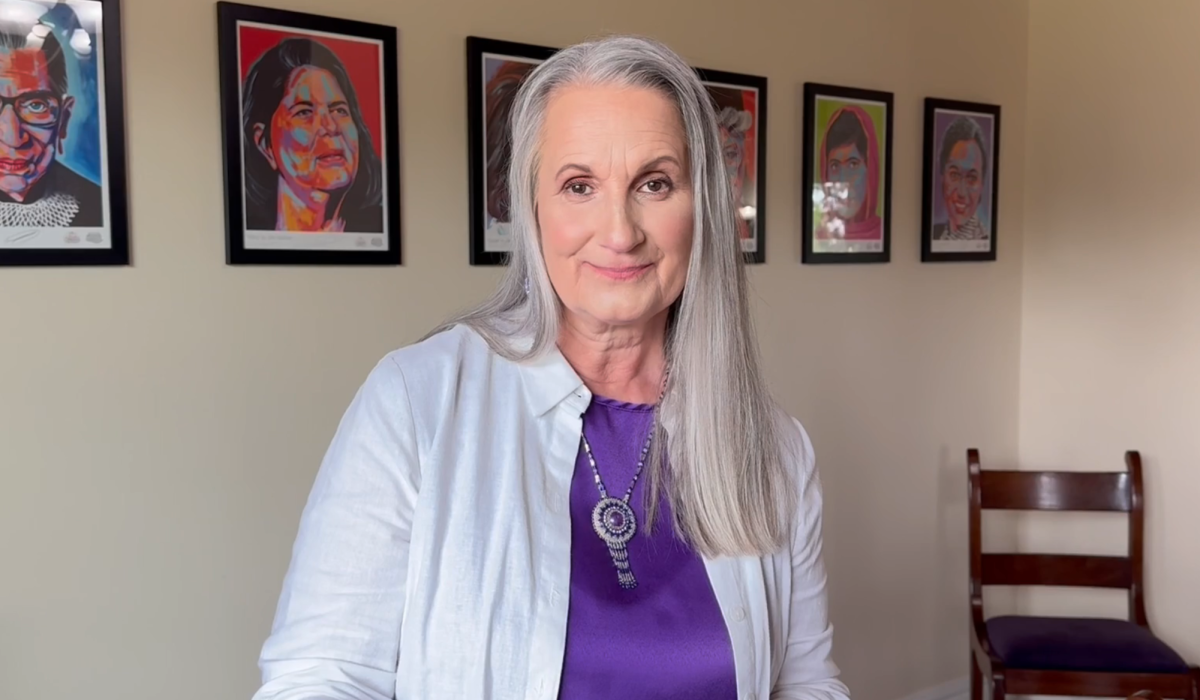Shortly before leaving office, President Joe Biden commuted Leonard Peltier’s life sentence to indefinite house arrest following decades of community activists fighting for his release.
“It’s finally over – I’m going home,” Peltier said in a press release from NDN Collective. “I want to show the world I’m a good person with a good heart. I want to help the people, just like my grandmother taught me.”
Peltier, an 80-year-old member of the Turtle Mountain Band of Chippewa who is experiencing declining health, has spent nearly fifty years in prison for the murder of two FBI agents on the Pine Ridge Indian Reservation.
“Leonard Peltier has been serving a sentence based on a conviction that would not hold up in court today and for a crime that the government has admitted it could not prove,” NDN Collective said in a letter demanding Peltier’s release days before Biden commuted his sentence.
The NDN Collective letter was signed by 124 tribal leaders including four headquartered in Oklahoma: Muscogee Creek Nation Principal Chief David Hill, Otoe Missouria Tribe Counsel Wilson Pipestem, Delaware Tribe Chief Brad Kills Crow and Cheyenne Arapaho Governor Reggie Wassana.
Before Peltier’s commutation, federal lawmakers had also called on Biden to take action.
“Serious concerns have been raised regarding the fairness of his (Peltier’s) trial and incarceration,” Democrat lawmakers said in a Dec. 2024 letter to President Joe Biden. “Calls for his release have also received sweeping support from civil liberties and human rights organizations.”
“The power to exercise mercy in this case lies solely within your discretion, and we urge you to grant Mr. Peltier clemency, allowing him to return home and live out his remaining days among his own people.”
Oklahoma’s Congressional delegation did not sign the letter nor did they release statements following Biden’s decision to commute Peltier’s sentence.
Sen. Brian Schatz (D-Hawaii), who consistently called on Biden to take action, thanked Biden and advocates for their work.
“President Biden did the right thing by showing the aging man in poor health mercy,” Schatz said in a statement.
On June 26, 1975, two FBI agents, Ronald Williams and Jack Coler, confronted members of the American Indian Movement–including Peltier–on a ranch owned by the Jumping Bull family.
The pair of FBI agents arrived on the ranch unexpectedly and were confronted by AIM members in a shootout. They were shot multiple times, including from point-blank.
“You had a couple of young agents, who were very aggressive and they did not have a warrant,” journalist Kevin McKiernan, who reported from the Pine Ridge shootout, said. “They were wearing plain clothes, and they were in unmarked cars and they came onto private property in the middle of a civil war.”
At the time, members of AIM were engaged in a deadly conflict with the Guardians of the Oglala Nation or “GOONs”. The conflict led to a rise in homicides on the reservations and many of the victims were AIM supporters, McKiernan reported in his 2019 film, “From Wounded Knee to Standing Rock: A Reporter’s Journey”.
“It was called the reign of terror because there were 60 or more killings during that period,” McKiernan said.
The FBI, which had roughly 2,500 officers on the Pine Ridge Reservation for tactical training, worked with the GOONs, McKiernan reported. The FBI denied the claim, he reported.
“The FBI and the GOON Squad work together pretty much,” Fred Nichol, Senior Federal Judge in the United States District Court of South Dakota, said.
Three members of AIM were initially charged but two–Robert Robideau and Darrelle Butler–were acquitted by a jury that heard evidence of reservation violence and believed they fired at the agents in self-defense.
While jurors in the Robideau-Butler case were aware of the ongoing violence on the Pine Ridge reservation, jurors in Peltier’s case were not. Judge Paul Benson presided over the Peltier’s case in North Dakota in a trial that excluded context about the violent environment on the reservation.
“I covered that trial in North Dakota with Judge Benson, and it just seemed like a murder trial,” McKiernan said. “There was no context to it whatsoever, and so that’s the difference between and why Butler (and) Robideau were acquitted and Peltier was convicted.”
According to McKiernan, the FBI set up ex-parte meetings with Benson to paint AIM as a terrorist organization.
“They said that he himself would be a target, that jurors would be a target,” McKiernan said. “They set up a climate that was much different from the trial in Iowa, where Butler and Robideau had been acquitted.”
Peltier’s conviction in the case has drawn criticism and concern from lawmakers, Indigenous community groups and human rights groups over the fairness of the proceedings leading to his trial and convictions.
Most notably, advocates have raised questions about the eyewitness evidence linking him to the point-blank shootings. The link to the point-blank shootings ruled out the chance of defense on the grounds of self-defense.
The eyewitness, Myrtle Poor Bear, claimed in an affidavit that she was Peltier’s girlfriend and had personally witnessed the killings. Poor Bear later tried to recant affidavits and said she was coerced into signing them by an FBI agent.
The judge ruled Poor Bear incompetent and prevented the jury from hearing her testimony.
In 1986, the United States Eighth Circuit Court of Appeals found that the prosecution had committed Brady violations by not sharing ballistics testing, that could have proved Peltier’s innocence, with the defense. Despite the finding of the Brady violation, the court did not find that the new evidence would have led to a jury’s acquittal of Peltier and upheld his conviction.
The calls for Peltier’s release have been ongoing. In a 2016 press release, Amnesty International called on then-President Barack Obama to commute Peltier’s sentence.
“Given that all legal remedies have been exhausted and that Leonard Peltier has spent over 40 years in prison and is in poor health, the Obama administration must commute his sentence and release him on humanitarian grounds,” an Amnesty International press release said.
When the news of Peltier’s release broke on Monday, Jan. 20, Dana Tiger, an Indigenous artist and activist from Muscogee, said Biden’s commutation was a sign of hope.
“I started crying and wailing, it was just such an emotional thing for me. I couldn’t believe it,” Tiger said about her reaction to the news.
McKiernan, who has kept track of Peltier’s case since covering the 1975 shootout, said that by Monday morning he had assumed Peltier wouldn’t be receiving a commutation or a pardon.
“I was just gobsmacked, I couldn’t believe it had happened,” McKiernan said. “It was literally two or three minutes before Biden left office.”
During President Donald Trump’s first term in office, Tiger painted a painting of Peltier. The painting has gone through some changes since it was originally painted, including the addition of phrases by Biden. While Tiger didn’t have many plans for the painting, named Leonard’s Freedom, she said that’s changed.
“I’ve never met him, but now I’ve got this painting and I get to give it to him or get it to him because I’ve always said it’s his painting,” Tiger said.
Gaylord News is a reporting project of the University of Oklahoma Gaylord College of Journalism and Mass Communication. For more stories by Gaylord News go to GaylordNews.net.







